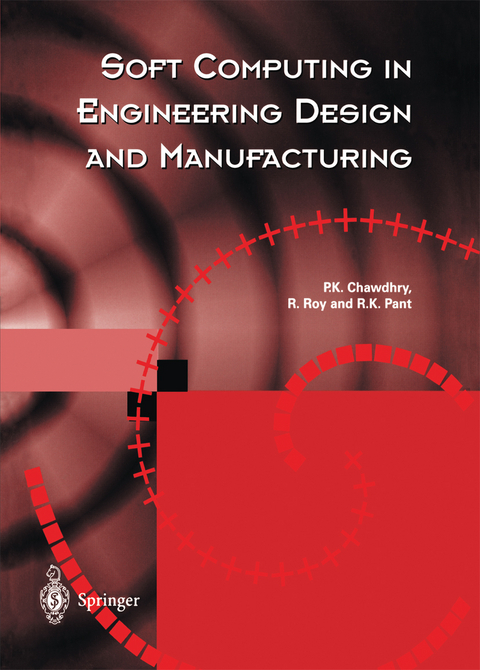
Soft Computing in Engineering Design and Manufacturing
Springer Berlin (Verlag)
978-3-540-76214-0 (ISBN)
Artificial Neural Networks Optimization by means of Evolutionary Algorithms.- Fitness Causes Bloat.- Triune Brain Inspired Unifying View of Intelligent Computation.- An Overview of Evolutionary Computing for Multimodal Function Optimisation.- Evolution of Cellular-automaton-based Associative Memories.- Simple Implementation of Genetic Programming by Column Tables.- XCS Classifier System Reliably Evolves Accurate, Complete and Minimal Representations for Boolean Functions.- Designing Neural Networks using a Genetic Rule-based System.- A Neural Network for Real-World Postal Address Recognition.- Neural Processing in Semi-Rigid Connections of Steel Structures.- Evolutionary Design of Neural trees for Heart Rate Prediction.- Hypertrapezoidal Fuzzy Membership Functions for Decision Aiding.- An Iterative Two-phase Approach to Fuzzy System Design.- A fuzzy control course on Internet.- FUZOS - Fuzzy Operating System Support for Information Technology.- Industrial Application of Chaos Engineering.- A Genetic Method for Evolutionary Agents in a Competitive Environment.- Empirically-Derived Population Size and Mutation Rate Guidelines for a Genetic Algorithm with Uniform Crossover.- Analysis of various evolutionary algorithms and the classical dumped least squares in the optimization of the doublet.- Genetic Programming with One-Point Crossover.- Evolutionary Tabu Search for Geometric Primitive Extraction.- Parallel Genetic Algorithms in the Optimization of Composite Structures.- Mijn Mutation Operator for Aerofoil Design Optimisation.- Design Problems with Soft Linear Constraints.- Finding Acceptable Solutions in the Pareto-Optimal Range using Multiobjective Genetic Algorithms.- Handling Probabilistic Uncertainty in Constraint Logic Programming.- A Voxel-based Representationfor Evolutionary Shape Optimisation: A case-study of a problem-centred approach to operator design.- A comparison of crossover for rural postman problem with time windows.- On Generating Optimum Configurations of Commuter Aircraft using Stochastic Optimisation Methods.- Application of Genetic Algorithms to Packing Problems - A Review.- Generic Evolutionary Design.- Evolving Digital Logic Circuits on Xilinx 6000 Family FPGAs.- A Dialogue Module at the Conceptual Product Design Stage through Genetic Algorithm.- Hard v. soft computing issues in configuration design.- Airframe optimisation based on structural evolution simulation by means of the GA and sequence of numerical models.- Simulated Evolution and Adaptive Search in Engineering Design - Experiences at the University of Cape Town.- A Genetic Algorithm Based Hybrid Channel Allocation Scheme.- Solving Scheduling Problems via Evolutionary Methods for Rule Sequence Optimization.- Estimation of Geometrical Parameters of Drill Point by Combining Genetic Algorithm and Gradient Method.- Adaptability by Behaviour Selection and Observation for Mobile Robots.- Application-Based Time Tabling by Genetic Algorithm.- A novel self-organising neural network for control chart pattern recognition.- Neuro-Fuzzy Control Based on the NEFCON-Model under MATLAB/SIMUUNK.- An Optimal COG Defuzzification Method for a Fuzzy Logic Controller.- Automatic Structuring of Unknown Dynamic Systems.- Takagi-Sugeno Fuzzy Control of Batch Polymerization Reactors.- Genetic Algorithms and Evolution Strategies Applied in Identification and Control: Case Study.- 9: Summary of Discussions.- Keyword Index.- List of Reviewers.
| Erscheint lt. Verlag | 19.11.1997 |
|---|---|
| Zusatzinfo | XIX, 480 p. |
| Verlagsort | London |
| Sprache | englisch |
| Maße | 193 x 270 mm |
| Gewicht | 1016 g |
| Themenwelt | Informatik ► Theorie / Studium ► Künstliche Intelligenz / Robotik |
| Technik ► Maschinenbau | |
| Schlagworte | Artificial Neural Network • Cognition • Complexity • Evolution • evolutionary algorithm • genetic programming • Information • Mutation • neural network • operating system • Optimization • pattern recognition • robot • Robotics • Scheduling • Simulation • Soft Computing |
| ISBN-10 | 3-540-76214-0 / 3540762140 |
| ISBN-13 | 978-3-540-76214-0 / 9783540762140 |
| Zustand | Neuware |
| Haben Sie eine Frage zum Produkt? |
aus dem Bereich


